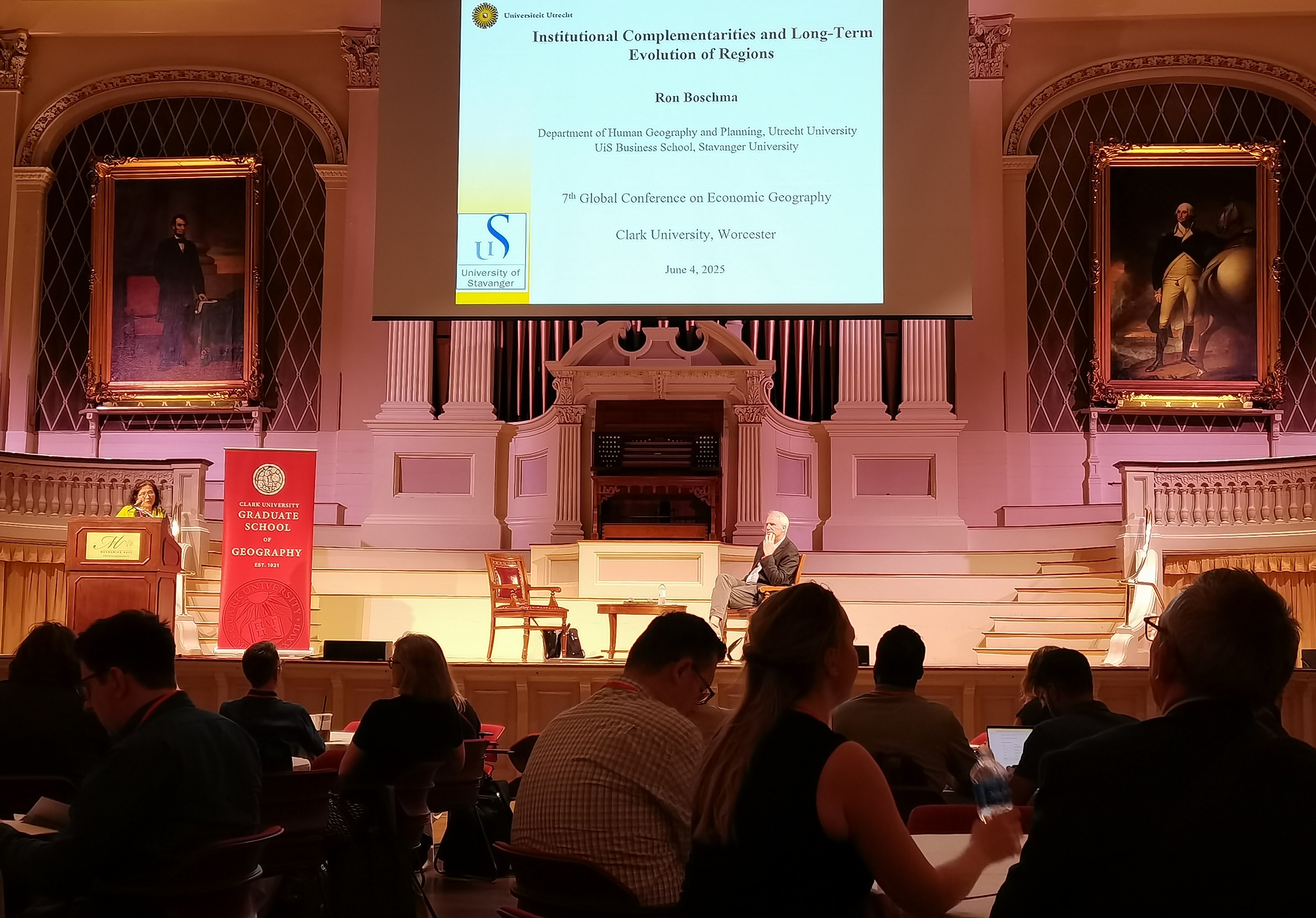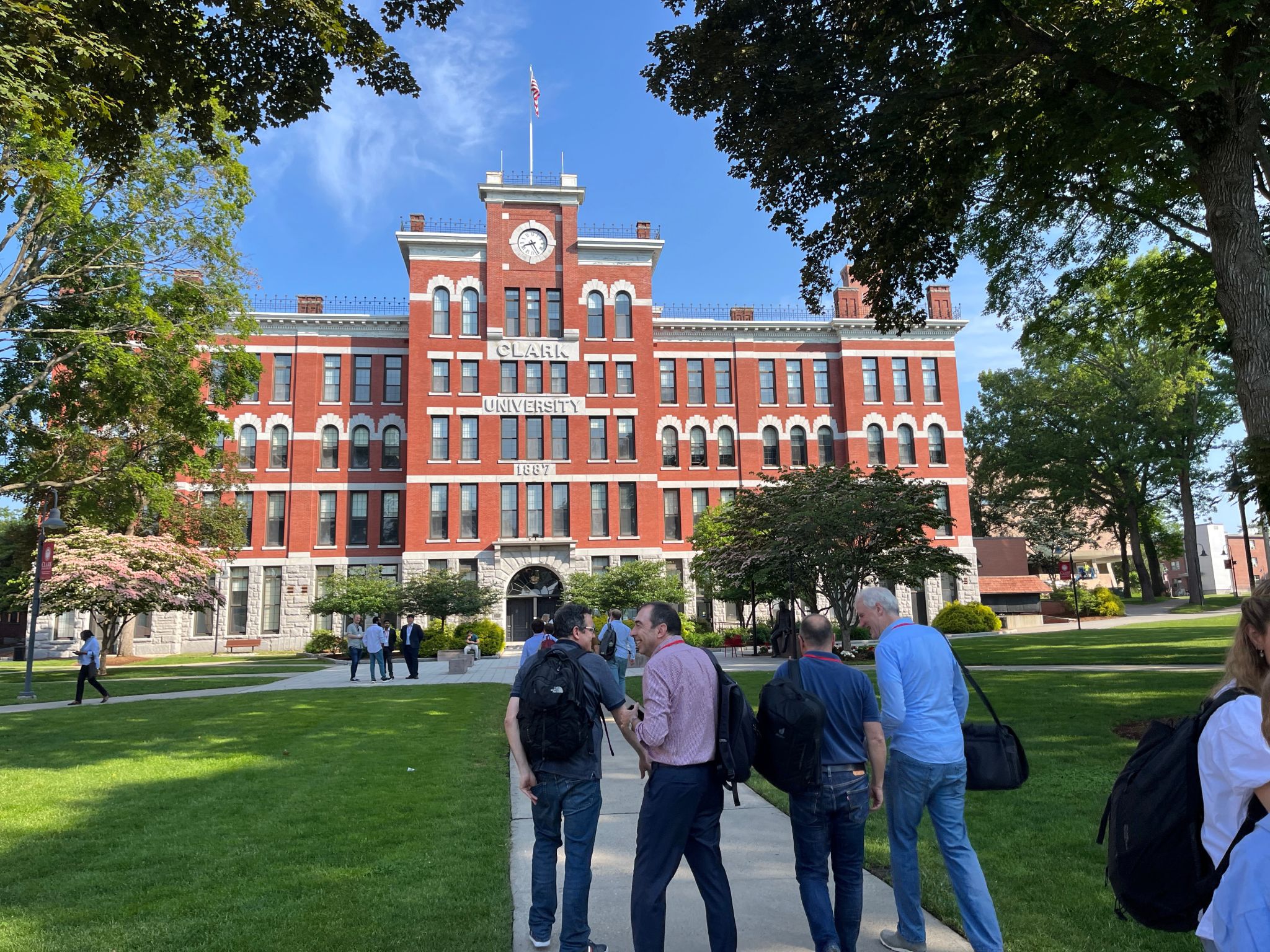Basin-scale resilience research highlighted at the 7th Global Conference on Economic Geography
Clark University hosted the 7th Global Conference on Economic Geography—a quadrennial gathering of leading scholars in the field during June 4–8, 2025. Drawing over 400 attendees and held on the occasion of the 100th anniversary of the Economic Geography journal, the conference convened researchers from around the globe for an agenda of keynotes, panels, and cutting-edge research sessions. The conference theme—“Governance Challenges for a Sustainable and Inclusive Future”—framed discussions across a range of issues, including inequality, innovation, digitalization, and sustainable development.
In a prominent contribution to the session “From Risk to Resilience: The Impact of Disasters on Globalized Regional Economies”, Dr. Liang Emlyn Yang presented the STORIES project, focusing on basin-scale flood resilience along the Mekong River. His presentation shed light on how regional efforts to build resilience can inform broader strategies in rapidly globalizing economies.
Dr. Yang also served as a panelist in “Urban Infrastructure and Economic Disparities in Natural Resources,” where, together with three other panelists and the session chair, he helped facilitate a lively discussion with participants on social reproduction, pluriversality, and institutional evolution as key drivers of sustainable regional development.
Beyond these formal engagements, Emlyn immersed himself in the rich scientific exchange of the conference. He participated in thematic sessions spanning gender in geography, community inequality, technological innovations, and the role of social networks in governance—further enhancing cross-disciplinary perspectives.
Media coverage emphasized the global resonance of the event with compelling keynote addresses: Ron Boschma’s talk highlighted how regions built on interconnected institutional infrastructures thrive; Beverley Mullings called for an economic geography informed by the lived realities of the ‘99 %’ amid intersecting global crises. Additionally, a roundtable on sustainable economic futures brought together leading scholars, including MIT’s Janelle Knox-Hayes, to explore the integration of Indigenous knowledge into economic planning; advocates for a Marshall-Plan-scale investment in climate-resilient infrastructure.
Dr. Yang’s participation added valuable insights on transboundary resilience efforts to this vital global dialogue—strengthening interdisciplinary understanding of how localized flood adaptation fits within complex economic systems.


